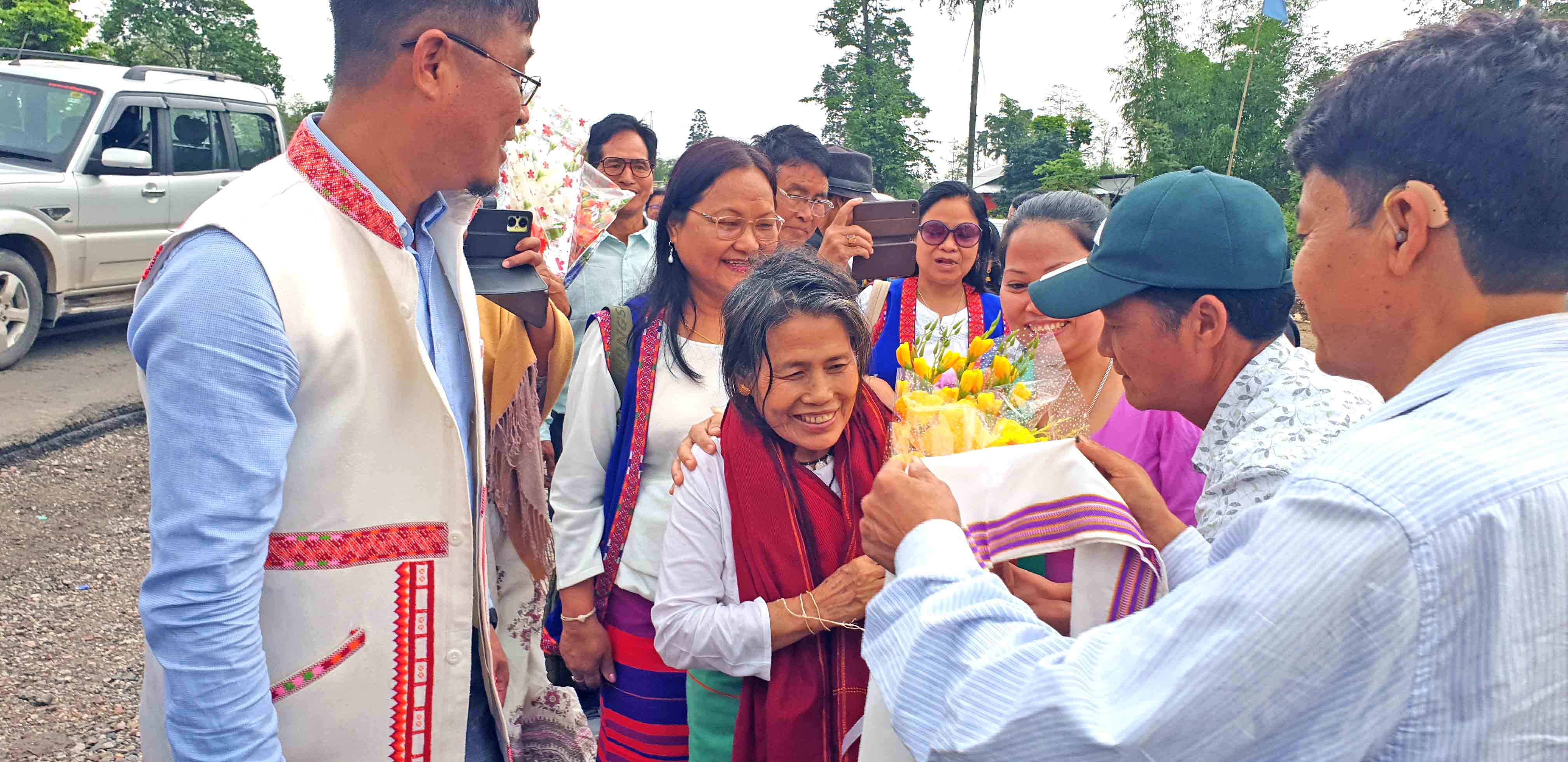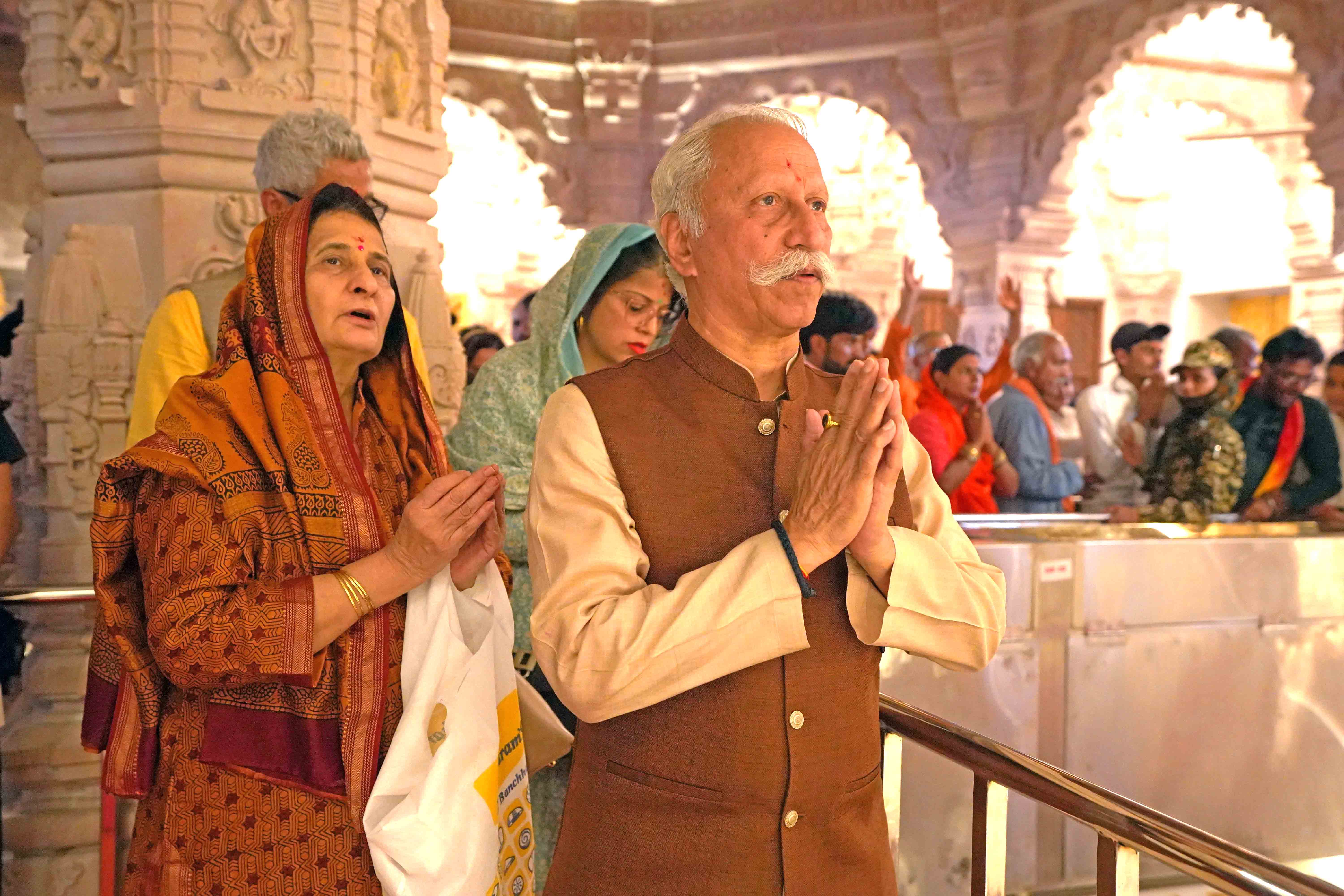-
Changlang DA holds monsoon preparedness meeting
-
Governor extends Gumkum Gumpa, Moh Mol greetings
-
 Yanung Jamoh Lego conferred Padma Shri, given warm reception back…
Yanung Jamoh Lego conferred Padma Shri, given warm reception back…
-
 Governor, First Lady of the State visit Ram Mandir
Governor, First Lady of the State visit Ram Mandir
-
Repoll in 8 polling stations in Arunachal on April…
-
Earth Day celebration stresses on combating plastic pollution
-
Men trapped in well rescued after 4 hours
-
Dr Jamuna Bini feted with prestigious Yuva Katha Samman
-
Army develops infra, healthcare at remote Tuting village
-
DC Capital appeals voters to exercise adult franchise
Agencies
NEW DELHI, Jul 2:At a time when cities across India are vying for the ‘smart’ tag, many have failed to implement key municipal reforms to ensure transparency and improve service delivery among residents. This was revealed in a report card of 500 cities selected under the Atal Mission for Rejuvenation and Urban Transformation (AMRUT), the central government’s urban upgrade scheme.
In June 2015, Prime Minister Narendra Modi launched AMRUT to revamp basic civic infrastructural facilities such as water supply, sewerage and urban transport across 500 cities. The Rs 50,000-crore programme is linked to 11 mandatory municipal reforms that cities have to implement over a five-year period.
Each ULB will get Rs 20 crore annually, 10% of which is the incentive for meeting targets. States will lose out on the incentive if their urban local bodies (ULBs) – the closest governance system to citizens – fail to implement the reforms.
However, two years down the line, many of them have been found wanting. Of the 36 states and union territories, only 16 – comprising 330 ULBs – got the 10% incentive in 2016-17. Union urban development minister M Venkaiah Naidu gave away awards to these states on June 23, the second anniversary of the scheme.
Of the 330 ULBs, only 40 – concentrated in Andhra Pradesh, Chhattisgarh, Jharkhand, Madhya Pradesh and Odisha – have rolled out a majority of the 11 reforms so far. Implementation in the remaining 290 ULBs has been patchy, at best.
For instance, of the 61 municipalities in Uttar Pradesh, only one has adopted most of the reforms.
The reforms include bringing a host of municipal services such as payment of property tax and issuance of death/ birth certificates online; creating a dedicated municipal cadre; and introducing double-entry accounting for municipal finances. Eight states – Bihar, Haryana, Himachal Pradesh, Assam, Arunachal Pradesh, Jammu and Kashmir, Meghalaya and Tripura – have done a poor job at implementing them, becoming ineligible for the 10% incentive.
“This reflects the indifferent attitude of states as far as implementing the reforms is concerned. One of the services that have not been put online is payment of property tax, where a lot of corruption still exists,” said professor OP Mathur, former faculty member, National Institute of Public Finance and Policy.
The states were required to rate themselves on their performance in implementing the 11 reforms, and submit their reports to the Urban development ministry for verification.
Twelve states and UTs, including Delhi, Karnataka and West Bengal, did not submit their self assessment reports. “Many ULBs have not provided us with the complete data for assessing their performance. It’s an indication of the poor state of municipal governance prevalent in the country,” said a senior official.
Urban sector experts said municipalities are the weakest link in the chain, primarily due to non-implementation of the 74th Constitutional Amendment Act (CAA) by states.
“The 74th CAA provides for the transfer of 18 powers – including electing the mayor directly for five years and levying of taxes – to ULBs. However, states are resisting it for fear of losing their autonomy. Moreover, the Centre’s top-down approach to most urban reform programmes has not helped,” said Saswat Bandyopadhyay, professor of planning at Ahmedabad’s CEPT University.
The 14th Finance Commission report in 2012-13 stated that municipal revenue accounted for just over 1% of the GDP in India, when compared to emerging economies such as Brazil (5%) and South Africa (6%).

Kenter Joya Riba
(Managing Editor)She is a graduate in Science with post graduation in Sociology from University of Pune. She has been in the media industry for nearly a decade. Before turning to print business, she has been associated with radio and television.
Email: kenterjoyaz@easternsentinel.in / editoreasternsentinel@gmail.com
Phone: 0360-2212313

